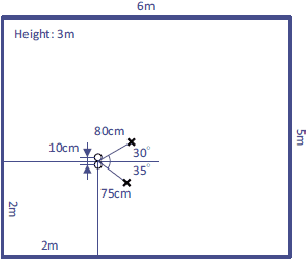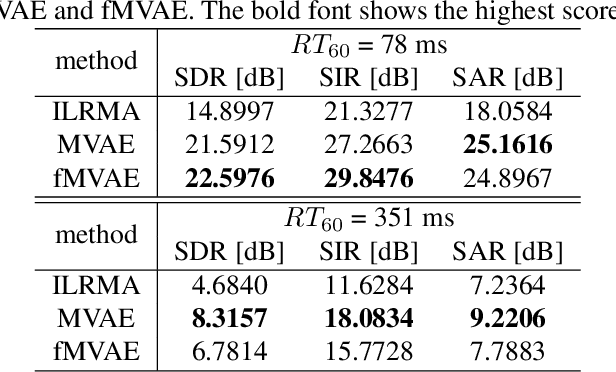Fast MVAE: Joint separation and classification of mixed sources based on multichannel variational autoencoder with auxiliary classifier
Paper and Code
Dec 16, 2018



This paper proposes an alternative algorithm for multichannel variational autoencoder (MVAE), a recently proposed multichannel source separation approach. While MVAE is notable in its impressive source separation performance, the convergence-guaranteed optimization algorithm and that it allows us to estimate source-class labels simultaneously with source separation, there are still two major drawbacks, i.e., the high computational complexity and unsatisfactory source classification accuracy. To overcome these drawbacks, the proposed method employs an auxiliary classifier VAE, an information-theoretic extension of the conditional VAE, for learning the generative model of the source spectrograms. Furthermore, with the trained auxiliary classifier, we introduce a novel algorithm for the optimization that is able to not only reduce the computational time but also improve the source classification performance. We call the proposed method "fast MVAE (fMVAE)". Experimental evaluations revealed that fMVAE achieved comparative source separation performance to MVAE and about 80% source classification accuracy rate while it reduced about 93% computational time.
 Add to Chrome
Add to Chrome Add to Firefox
Add to Firefox Add to Edge
Add to Edge